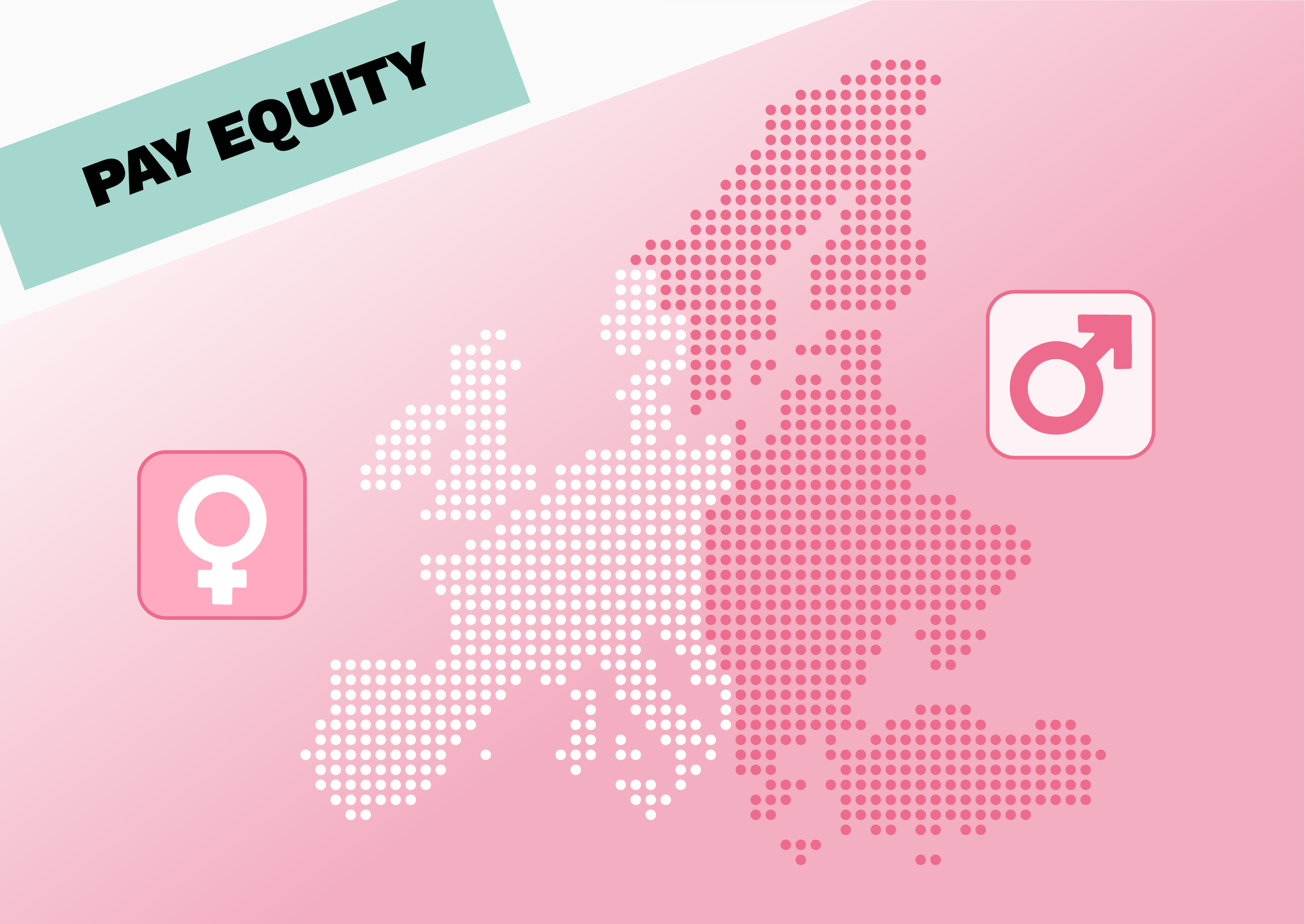What causes the gender pay gap in the UK?
The pay gap is measured in the difference between average pay for men and women, in every job, in every sector, right across the UK. Our new UK gender pay gap report show that gender discrimination still exists in the UK:

What does it mean in practical terms? Well, it doesn’t mean that a woman typically receives less than a man doing the same role – that’s not such a widespread problem any more.
But women are less likely to hold the higher-paid positions. There are still far fewer women than men in management, founding and C-level roles in the UK. And that’s what causes the discrepancy in average salaries between genders.

Why are women systematically funnelled into the middle and lower-paying jobs? It’s not just a historic problem: the pay gap appears in start-ups, too. Payspective conducted a survey of more than 70 UK start-ups, and 92% reported that the men on their payroll received a higher average salary than the women.
What can employers do about gender discrimination?
There’s good news and bad news. In the UK, the pay gap has been gradually diminishing during the last 10 years – but we’re still far from achieving equal pay.
This isn’t one of those problems that will vanish if we ignore it. Gender discrimination could be hiding in your organisation; here are three areas worth examining.
1: Rethinking the recruitment process
So your job ads always feature a salary range. You head-hunt women from specialist networks for male-dominated roles (like tech). Your management team is fair and indiscriminate. But... does your recruitment process reinforce gender discrimination?
When jobs are created or re-advertised, there should always be clarity on the role’s flexibility in order to level the playing field for people with parental or other responsibilities. If there’s potential for job-sharing, part-time or flexible hours, you should make that clear from the outset. Candidates should never be forced to attend an interview so they can ask whether there is any flexibility.
While examining your recruitment policy, consider eliminating salary negotiation – a process which has always disadvantaged people who are in minority groups.
Writing in the Harvard Business Review in January, authors Deepa Purushothaman, Deborah Kolb, Hannah Riley Bowles and Valerie Purdi-Greenaway commented:
“In our experience teaching, interviewing, and working with female managers and executives, we commonly hear WOC report feeling an instinct to stay silent and be grateful for what they have. They often report a reasonable fear of backlash if they strive beyond others’ expectations or push back on additional asks.”
2: Establishing your own compensation structure
Looking around at your competitors to gauge the right salary for your new recruits? This method is wobbly at best – at worst, it could reinforce an existing pay gap. To prevent inequal pay rates, build a clear and visible compensation structure. You can use a resource like Figures to take a snapshot of compensation in your sector.
Developing a compensation structure allows you to stand beside every hiring decision, with a clear pathway that gives employees a sense of fairness and security. Once you have your own system in place, you can recruit with confidence, and you’ll never need to ask a candidate for their previous salary – preventing perpetuation of the historic gender pay gap.
3: Rewarding performance
Hiring women for every team is important. But it’s also important to offer opportunities to the women who are already in the ranks – without expecting them to battle for it.
COO Jessica Zwaan says that she eliminated negotiation in the company’s pay reviews, too:
“If you are a person in high demand, you’ve gone to a very fancy school, strong resume, you know that you’re hot property, you’re going to be very comfortable having a negotiation conversation because it doesn’t really matter. However, if you’re a working mum who needs flexibility, if you had a career break, or you didn’t go to an illustrious university, it’s going to be difficult for you to have a tough negotiation because you’ve got a lot more to lose. The power imbalance is just so massively different.”
Instead of measuring performance through annual interviews, you could calculate pay-rises using a rating system that recognises each person for their work, skills, and value. Managers can assess their team’s performance at regular intervals or initiate pay reviews in response to achievements – and this technique is known to increase trust and loyalty among teams, who feel confident that they are properly valued.
Ready to eliminate inequal pay? Use Figures to benchmark your salaries and close the gender pay gap.
Want to redesign your processes for inclusivity? Our partners at FairHQ have tonnes of resources to help increase diversity and inclusion in your organisation. You can survey your employees and set ambitious goals using their user-friendly and innovative platform.





